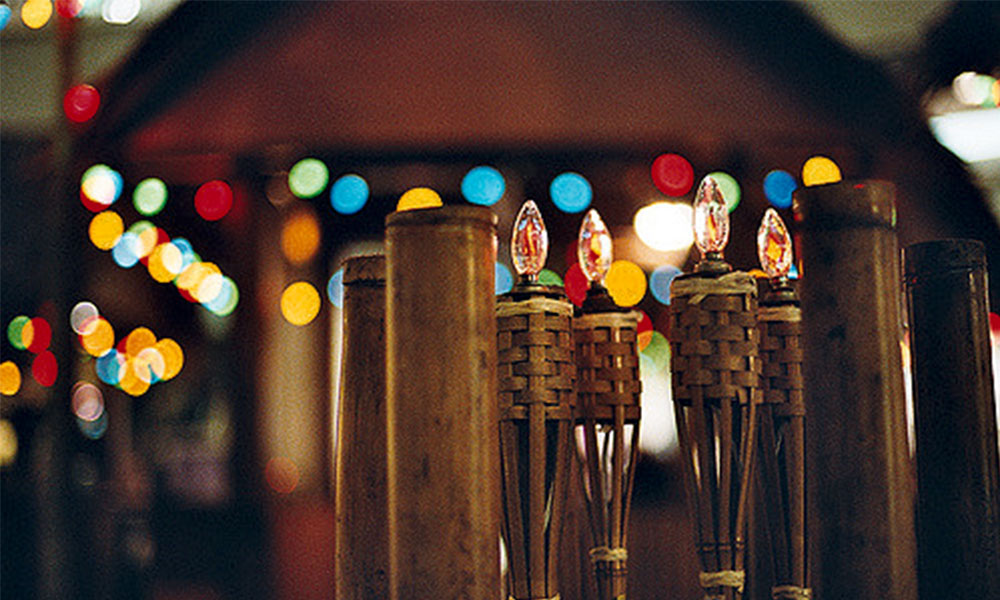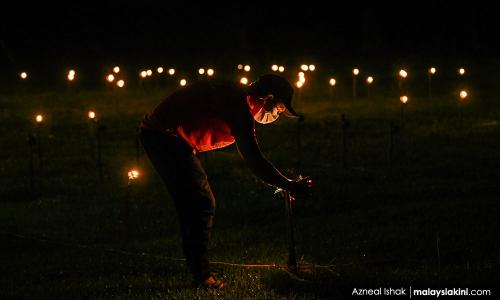COMMENT | Something extra special to remember this Hari Raya
COMMENT | This Thursday (May 13), Insha’ Allah (God willing!), our small Muslim community at the southern tip of Silicon Valley, California, will celebrate our Hari Raya Aidilfitri. It will be extra special!
This year, we will once again be able to celebrate as a congregation, a precious joy denied us last year because of the Covid-19 pandemic. Now thanks to the enlightened leadership of Governor Gavin Christopher Newsom, together with the collective prudence of our greater community to follow sensible public health guidelines, plus the brilliance of our scientists and their vaccines, we have “flattened the curve”.
With the predictable warm California spring sunshine, we will pray on the lawn of our beautiful community centre. We will, of course, maintain social distancing and don our face masks. That will complement our festive attire.
Unlike many Muslim communities elsewhere today and in the past, we announced our Hari Raya day based on calculations, dispensing with the traditional proviso, “conditioned on sighting the new moon”. Besides, by May 13, we would have fasted for 30 days. By our lunar calendar, no month exceeds 30 days.
We opted for the scientific route less on reviewing the treatises of yore, more for practicality. In the beginning, we too had, as per tradition elsewhere, to rent a facility for two consecutive days, just in case the new moon would not be sighted. We decided early that the extra rental costs could be better spent on the needy. Allah would not look kindly upon us wasting precious funds on empty halls.
Hari Raya, as we Malays call Eid ul Fitra, brings forth many memories. Most are warm and pleasant, a joy to recall and share. Few less so, and would bring tears and regrets.
Growing up in a kampung in Kuala Pilah, Negeri Sembilan, I remember well my parents and grandparents recalling their past Hari Raya “celebrations” during the desperate era of the Great Depression and the horrific years of the Japanese Occupation. In their re-telling, there was never a hint of anger or regret, only gratitude to have been able to celebrate, however modest, with friends, family, and community despite the austere times and trying circumstances.
Now it is my turn to tell my children and grandchildren of my past Hari Rayas. Three come to mind. First was last year when, unprecedented, we had to dispense with our traditional communal gathering. Our imam Ilyas could hardly hold back his tears when he delivered his Eid "sermon" virtually. Bless him, he paid tributes to the engineers, scientists, and entrepreneurs who made possible the Zooms and Facebooks so we could remain connected during the pandemic.
I saw similar touching scenes in our intensive care units where nurses would hold their cellphones to desperately ill Covid-19 patients so they could, in their final moments, "see" and bid their loved ones goodbyes. Those wonderful media platforms also let me have my own Raya “gathering” with my extended family.

Second was Hari Raya of 1997 when I visited Malaysia. Like Muslims, the Chinese (and also Jews), too, follow the lunar movements for their calendar. That year, Hari Raya and Chinese New Year overlapped. The government seized on that fortuitous moment to remind citizens of the virtues of embracing tolerance and cultivating harmony. Businesses, too, joined in with their uplifting commercials celebrating the two joyous occasions. Petronas, in particular, carried memorable catchy jingles and endearing images in their advertising.
Those wholesome messages notwithstanding, there was nothing warm or uplifting in the Hari Raya sermon I heard that morning at the International Islamic University Mosque in Petaling Jaya. The imam venomously lashed out at those who dared elevate non-Islamic festivities to the exalted status of Hari Raya, a direct assault on the government’s noble intentions.
I have low tolerance for long soporific sermons but the ferocity of the imam’s fulminations kept me awake. “During our Raya we go to mosques,” he bellowed, “they go to casinos!” Words like heathens and blasphemy spouted forth freely from his frothing mouth like an angry rabid dog, irreverently incongruous in a place of worship and during a traditionally forgiving season.
Later that afternoon at my brother-in-law Ariffin’s “Open House” before we enjoyed the cornucopia of delicious offerings, his young imam gave an invocation, first in Arabic and then English. Afterward, a non-Muslim guest whispered to me how touched he was with the d'ua. That was a much-needed antidote for me, what with the earlier outpouring of poison I had to endure at the mosque.
My third Raya, and I remember it for all the wrong reasons, was in 1976. I had just started my job in Kuala Lumpur. After being away for almost a decade and a half, I was anticipating very much the Hari Raya that year. My father had reminded me that all my siblings and their spouses, as well as children, would be present. There may not be another opportunity, my mother chimed in.
After arranging for appropriate coverage, I left for my parents’ house in Seremban. The next day after Raya prayers, I received a desperate long-distance call. My medical officer could not get hold of my covering consultant and one of my patients had gone sour.
“You can’t leave,” my mother pleaded, “your brothers and sisters are not here yet!”
I had to. Thanks to the deserted highway I made it in time. Later that day and the next, what with my having to stay near the hospital, and with every Malay “balik kampung”, I managed a leisurely delightful tour of the city.
My mother was right. There would never be another Hari Raya when we all could be together again. My precious lesson? Enjoy the moment!
On this extra special Hari Raya, I send the traditional Malay greetings, “Ma’af, Zahir, dan Batin!” (I seek forgiveness and express my gratitude in all sincerity.)
M BAKRI MUSA is a Malaysian-born and Canadian-trained surgeon in private practice in Silicon Valley, California. He writes at bakrimusa.blogspot.com
The views expressed here are those of the author/contributor and do not necessarily represent the views of Malaysiakini.
RM12.50 / month
- Unlimited access to award-winning journalism
- Comment and share your opinions on all our articles
- Gift interesting stories to your friends
- Tax deductable
